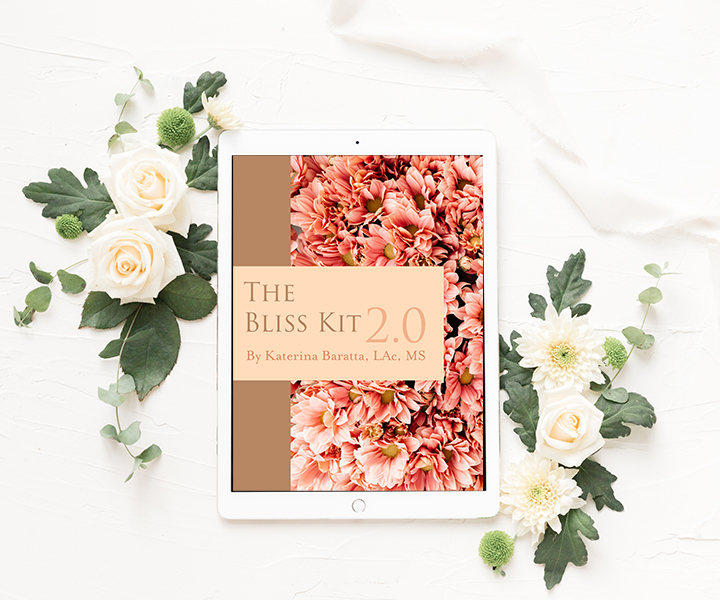3 Hidden Contributors to Anxiety
Have you seen the new Inside Out movie?
In case you aren’t familiar with it, Inside Out is a Pixar movie that shows how an 11-year-old girl, Riley’s emotions interact and develop inside of her.
The new sequel, Inside Out 2, features a 13-year-old Riley as she hits puberty and a new cast of more complicated emotions gets introduced, including embarrassment, ennui, and—most disruptive of all—anxiety.
What I love about this movie is that you can see how anxiety is just trying to protect Riley by predicting possible outcomes and trying to control the situations around her.
This is exactly what anxiety does in all of us.
Anxiety is a natural response to stress.
When the sympathetic nervous system’s stress response gets turned on in your body, your mind automatically kicks into hyper-mode, trying to find solutions to the discomfort you feel in your body.
This hyper-mode can be helpful in problem-solving, but when answers aren’t immediately obvious—as is often the case in life– anxiety takes over.
Part of the problem is that the mind doesn’t always identify the cause of stress and anxiety accurately.
It might seem obvious, sure. Maybe you have a looming deadline, or you’re contemplating divorce and don’t know what your next steps will be. But some people handle these situations with more ease and grace than others.
What’s the difference? Well, there’s usually more going on beneath the surface when it comes to anxiety.
It’s undeniable that life’s challenges contribute to the amount of stress and anxiety you experience. But since stress is just as much a physical phenomenon as a psychological one, if the stress in your body is already elevated because of physiological imbalances, external challenges will tip you over the edge into anxiety much more easily.
So when I work with clients who are dealing with chronic stress and anxiety, we don’t linger on the conflict they had with their boss the other day, or what their parent did to them when they were 10. That’s what talk therapy is for, and it only scratches the surface.
What I do is help you to identify the deeper imbalances that make those conflicts and challenges feel so overwhelming.
Because once these underlying stressors are addressed, you can handle whatever life throws your way much more easily.
To understand the hidden contributors to anxiety, I always look at 3 things:
1. What’s going on with digestion?
Digestion is one of the best indicators of overall health and how well your body is able to process what it takes in (both physically and emotionally). If you experience regular gas, bloating, digestive/abdominal discomfort, or you’re pooping anything more or less than 1-2, maaaaybe 3 well-formed stools a day, something is off and it’s causing excess stress in your system.
2. What menstrual or perimenopause/menopause symptoms are showing up?
While symptoms like menstrual cramps and hot-flashes might seem to be ubiquitous, they’re actually signs of deeper imbalances that contribute to overall stress in your mind and body.
3. How’s sleep?
Good quality sleep is essential for physical and emotional detoxification and healing, and if you don’t get enough of it, anxiety is often the result. Of course, anxiety is often the cause of insomnia, but luckily, there are many natural strategies you can use to help you with both.
Related: Anxiety and Insomnia: How to Get More Sleep When Your Mind Won’t Shut Up
Once I get a clearer idea of what’s going on in the body, I use a multifaceted approach to help my patients heal their anxiety from the inside out.
Each treatment plan is different, but they usually include:
• Acupuncture and bodywork sessions
• Personalized dietary modifications to improve gut health and enhance physiological balance
• Custom herbal formulas
• Yoga, qigong, and Trauma Release Exercises (TRE)
Most patients notice that they feel more empowered, energized, and less anxious within 3-6 weeks of starting this program, with many if not most symptoms resolving within 3-6 months.
Related: How Many Acupuncture Sessions Do You Need Before You Feel Better?
Anxiety might not ever go away entirely. Remember, it’s a natural response to stress! But it can stop being overwhelming.
You can get to a place where when anxiety does decide to show up, you know exactly what to do to help yourself feel better, faster.
If you’d like to experience more ease, joy, and resilience, I’d love to help.
Click here to book your first session now so we can get started, virtually or in-person.
I can’t wait to see where this takes you!
Warmly,
Katerina





